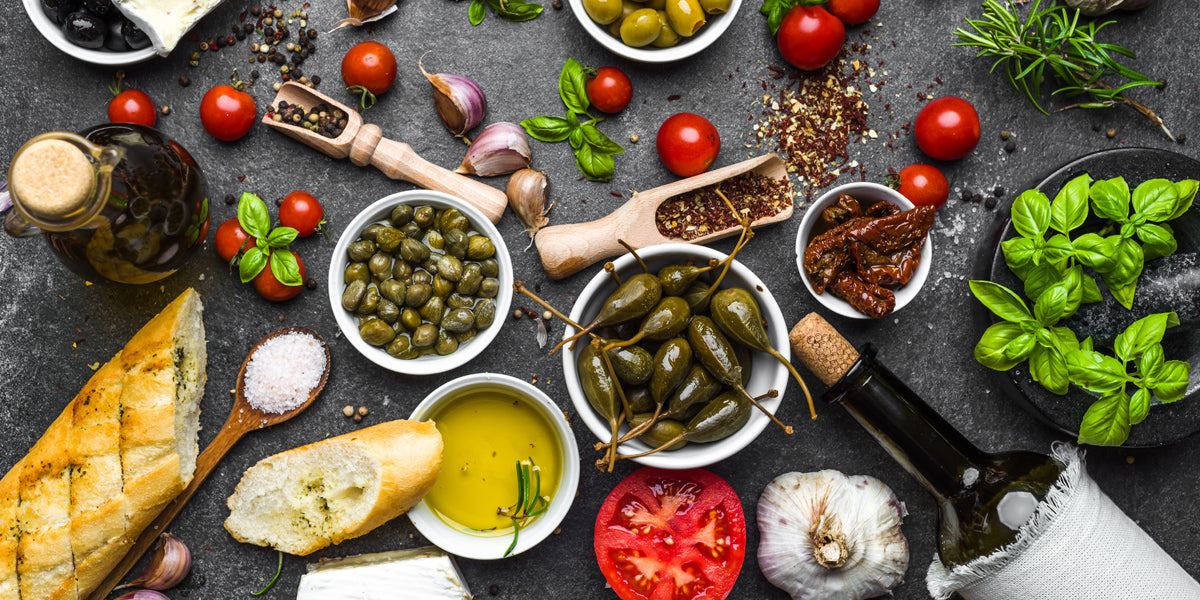
What Are Special Diets? Why Follow Them?
Does it seem like everyone you know is following some type of special diet? As we learn more about our bodies and role of food and nutrition, some people find that they feel better when following a special diet or eliminating certain foods, while others are prescribed a "special diet" as a form of therapy to treat a food allergy, digestive problem, or other ailment.
What Is A Special Diet?
The phrase "special diet" is a term used by medical and nutrition professionals to indicate the type of foods or nutrients that someone should add or eliminate to their diet to help them heal, recover, or feel better. Many people are first exposed to a special diet during a hospital stay where the medical team may prescribed them a "soft foods" diet or a "clear liquids" diet, for example. But special diets expand far beyond the walls of hospitals realm, and many people try or are interested in how a special diet might be able help them.

A List of Popular Special Diets
There are hundreds of special diets, but some of the most popular ones today are the following. Each one eliminates or restricts a certain food or food group.
- Dairy-Free - this diet removes all dairy products, such as animal milk, cheese, butter, yogurt, and ice cream
- Gluten-Free - people often follow this diet for medically necessary reasons (because they have celiac disease or a gluten intolerance) or at an attempt to feel better or lose weight. A gluten-free diet eliminates all gluten-containing grains, which include wheat, derivatives of wheat (such as farro or wheat berries), rye, barley, triticale, malt, and brewer's yeast
- Grain-Free - some people have an allergy to grains or a certain grain, while others choose to eliminate grains because they are following a Paleo or Whole30 Diet, for example, or for other reasons. This diet eliminates all grains, including wheat, rice, corn, oats, millet, barley, rye, and more, as well as derivatives of grains, such as rice syrup and oat milk
- Low-Carb - a diet that restricts carbohydrate intake is sometimes prescribed to people who have a heart condition, diabetes, a glucose intolerance, or metabolic disease. There are many ways to follow a low-carbohydrate diet, but plans usually restrict simple carbohydrates, such as white bread, sugary foods, and processed snacks
- Low-FODMAP - this diet eliminates foods that are high in fermentable carbohydrates, which can trigger digestive issues in some people. High FODMAP foods that are often reduced or eliminated include wheat, garlic, onions, some fruits, and some vegetables. Lower FODMAP substitutions are often made. For example, butternut squash is a high FODMAP food while tomatoes are a low FODMAP food
- Low-Sodium - a low-sodium diet is a nutrition therapy often prescribed to people who have salt sensitivity or heart disease (including high blood pressure). The DASH Diet (which stands for Dietary Approaches to Stop Hypertension) is one of the most prescribed special diets, and it includes a focus on fruits, vegetables, grains, fish, low-fat dairy, poultry, and nuts while cutting back on high-sodium packaged foods, sweets, sugary drinks, and red meat
- Vegan - plant-based diets have gained a lot of traction in recent years, as they have been linked to a lower carbon footprint and many positive health outcomes. There are many versions of plant-based eating, from flexitarian to vegan, each one limiting or completely elimination animal-based foods, such as eggs, meat, dairy, poultry, and fish. A lacto-ovo vegetarian, for example, is someone who eliminates meat, poultry, and fish, but still eats eggs and dairy. A full vegan diet allows no animal products at all, and in some cases, people even eliminate any animal-derived products, such as honey (made from bees) and white table sugar (which can sometimes be whitened with bone char)
Reasons People Follow A Special Diet
Sometimes people don't have a choice in whether or not they need to follow a special diet. Someone with lactose intolerance, for example, may need to follow a dairy-free or dairy-limited diet in order to feel well. As another example, someone with a life-threatening nut allergy may need to follow a special diet that is completely void of nuts and foods made from nuts.
Other times, people may find that their diet preferences have changed over time or need to shift because of their life stage. A woman who is pregnant or breastfeeding may follow a special diet for her health and the health of the growing fetus or nursing baby. Someone who is recovering from surgery or an illness may need or want to follow a special diet during the healing process.
And many people follow a special diet in an attempt to feel better than they do right now. While it is always best to work with a registered dietitian nutritionist who can help you navigate special diets and determine if one is right for you, many people choose to experiment with special diets on their own.
Did You Know? Otamot Works in Most Special Diets
Fortunately for people who have to (or want to) follow a special diet, there are many healthy and delicious products available that can make it easier and convenient to do so. Take Otamot products, for example, which are always gluten free, dairy free, grain free, low carb, low sodium, added sugar free, and vegan. A veggie-filled product like this can open the door to many nutritious meals for someone who is following a special diet.

Jessie Shafer is a registered dietitian-nutritionist, team member at The Real Food Dietitians, former magazine editor, and busy mom of two who loves to help people feel their best through the power of nutrition.


